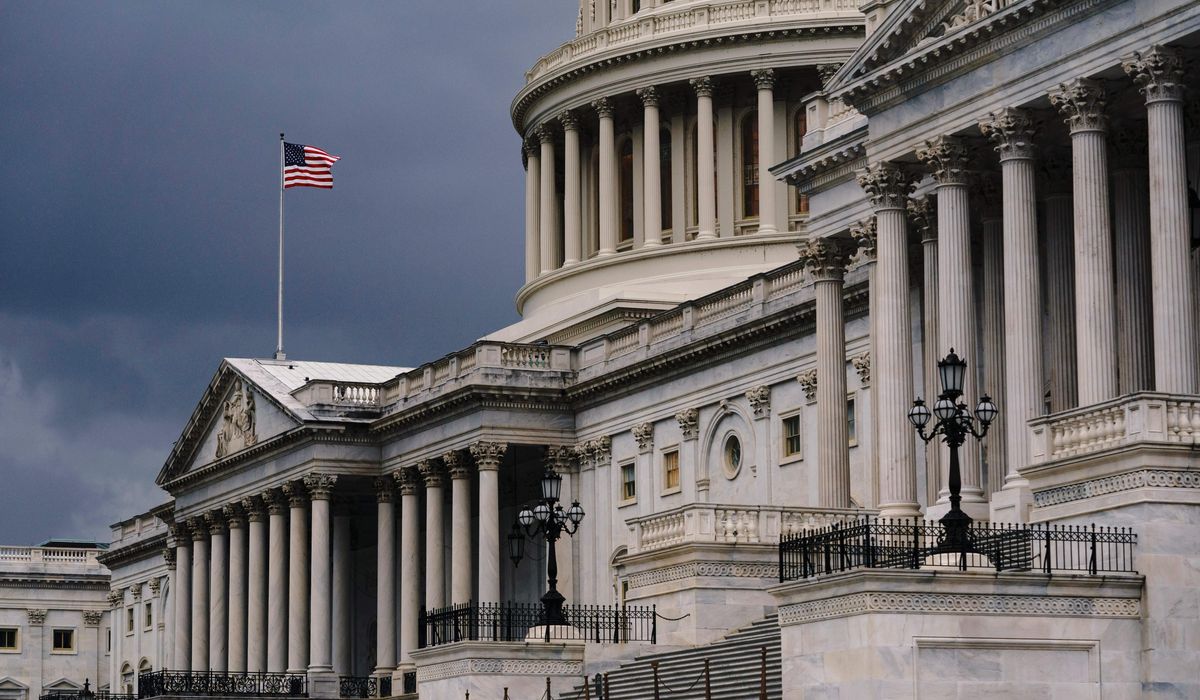

Trump tax bill will add $2.4 trillion to deficit and leave 10.9 million uninsured, CBO analysis says

President Trump’s big bill that is making its way through Congress will cut taxes by $3.75 trillion but also increase deficits by $2.4 trillion over the next decade, according to an analysis released Wednesday by the nonpartisan Congressional Budget Office.
The CBO also estimates an increase of 10.9 million people without health insurance under the bill by 2034, including 1.4 million who are in the country without legal status in state-funded programs.
The package would reduce federal spending by nearly $1.3 trillion over that period, the budget office said.
“Republicans cry crocodile tears over the debt when Democrats are in charge — but explode it when they’re in power,” said Rep. Brendan Boyle of Pennsylvania, the top Democrat on the House Budget Committee.
The new deficit projection is in line with past CBO analysis of the bill, which Republicans said does not fully account for the economic growth spurred by the tax cuts and other measures.
“That capital investment begets more employment. That employment and jobs beget more economic activity. It’s a positive feedback loop that will make America grow at a great degree, much higher than the 1.8 percent that the Congressional Budget Office predicts. And if we’re at three percent or better, we’re going to see that deficit begin to close much more rapidly,” Sen. Bill Hagerty, Tennessee Republican, said Wednesday on Fox Business.
The CBO analysis comes at a crucial moment in the legislative process as Mr. Trump is pushing Congress to have the final product on his desk to sign into law by the Fourth of July. The work of the CBO, which for decades has served as the official scorekeeper of legislation in Congress, will be weighed by lawmakers and others seeking to understand the budgetary impacts of the sprawling 1,000-page-plus package.
Ahead of CBO’s release, the White House and Republican leaders criticized the budget office.
White House press secretary Karoline Leavitt said CBO has been “historically wrong,” and Senate Majority Leader John Thune said the CBO was “flat wrong” because it underestimated the potential revenue from Trump’s first round of tax breaks in 2017.
The CBO last year said receipts were $1.5 trillion or 5.6% greater than predicted, in large part because of the “burst of inflation” during the COVID-19 pandemic in 2021.
Alongside the costs of the bill, the CBO had previously estimated that 8.6 million people would no longer have health care, and 4 million fewer would have food stamps each month due to the legislation’s proposed changes to Medicaid and other programs.
The bill, called the One Big Beautiful Bill Act after the president’s catch phrase, is grinding its way through Congress as the top priority of Republicans, who control both the House and Senate. It faces stiff opposition from Democrats but can pass without Democratic votes.
Democrats call it Trump’s “big, ugly bill.”
All told, the package seeks to extend the individual income tax breaks that had been approved in 2017, but will expire in December if Congress fails to act, while adding new ones, including no taxes on tips.
If the 2017 tax cuts are allowed to expire this year, it will trigger one of the largest tax increases in modern history.
The bill also includes a massive buildup of $350 billion for border security, deportations and national security.
To help cover the lost revenue, Republicans want to slash some federal spending. They propose phasing out green energy tax breaks put in place under President Biden. New work requirements for some adults up to age 65 on Medicaid and the Supplemental Nutrition Assistance Program, known as SNAP, would begin in December 2026 and are expected to result in less spending on those programs.
The package also would provide a $4 trillion increase to the nation’s debt limit, which is now $36 trillion, to allow more borrowing. The Treasury projects the debt limit will need to be raised this summer to pay the nation’s already accrued bills.
Now in its 50th year, the CBO was established by law after Congress sought to assert its control, as outlined in the Constitution, over the budget process, in part by setting up the new office as an alternative to the White House’s Office of Management and Budget.
Staffed by some 275 economists, analysts and other employees, the CBO says it seeks to provide Congress with objective, impartial information about budgetary and economic issues.
Its current director, Phillip Swagel, a former Treasury Department official in President George W. Bush’s administration, was reappointed to a four-year term in 2023.
